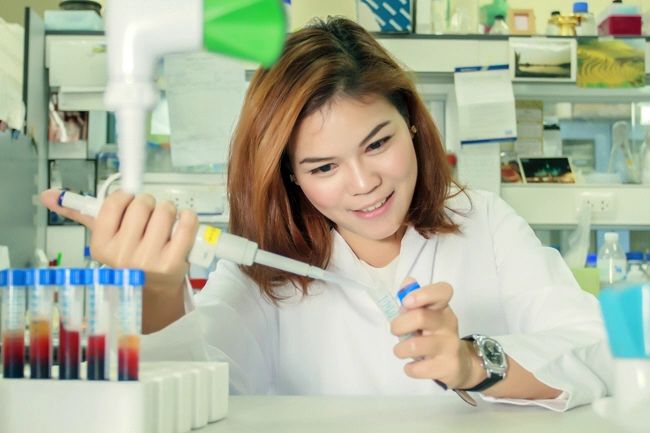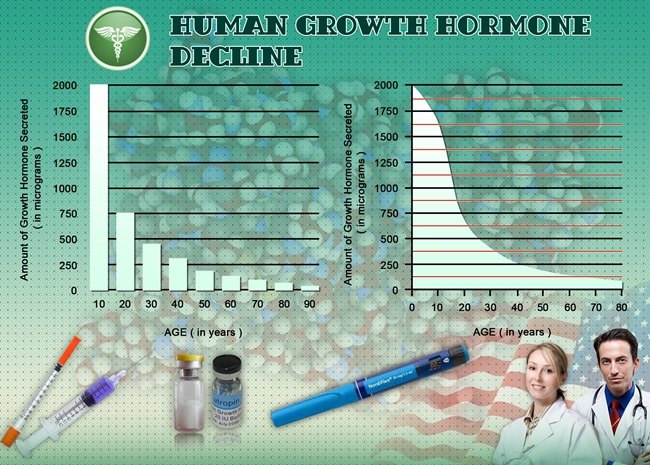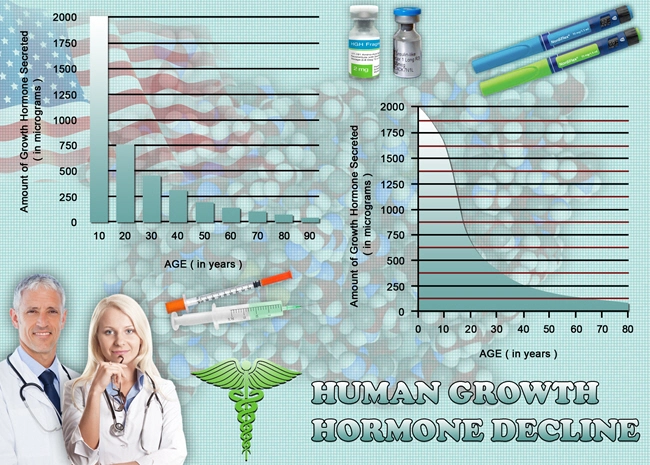
Introduction to Autism and Endocrinology
Autism Spectrum Disorder (ASD) is a complex neurodevelopmental condition characterized by challenges with social interaction, communication, and repetitive and restricted behaviors. In the United States, autism affects an estimated 1 in 36 children, with a notable prevalence among males. The role of endocrinology in treating autism, particularly in males, is an emerging field that seeks to understand and leverage the hormonal influences on brain development and function.
The Endocrine System and Autism
The endocrine system, responsible for hormone production and regulation, plays a crucial role in development and behavior. Hormones such as testosterone, estrogen, and cortisol have been implicated in the pathophysiology of autism. Research has shown that males with autism often exhibit atypical levels of these hormones, which may contribute to the symptoms and severity of the disorder.
Testosterone and Autism
Testosterone, a predominantly male hormone, has been a focal point in autism research. Studies have found that elevated prenatal testosterone levels may be associated with an increased risk of developing autism. This hormone influences brain development, potentially leading to the social and communicative challenges observed in autistic individuals. In the context of treatment, modulating testosterone levels could offer a novel approach to managing some symptoms of autism.
Estrogen and Its Potential Role
While estrogen is typically considered a female hormone, it also plays a role in male physiology. Some research suggests that estrogen levels may be dysregulated in males with autism, potentially affecting brain function and behavior. The exploration of estrogen modulation as a therapeutic strategy is in its infancy but holds promise for future interventions.
Cortisol and Stress Response
Cortisol, the body's primary stress hormone, is another key player in the endocrine-autism nexus. Individuals with autism often experience heightened stress and anxiety, which can be reflected in abnormal cortisol patterns. Addressing these patterns through endocrinological interventions could improve the quality of life for males with autism by reducing stress and its associated symptoms.
Current Endocrine-Based Treatments
Currently, endocrine-based treatments for autism are limited but evolving. Some studies have explored the use of hormone therapies to modulate symptoms, though these are not yet standard practice. For instance, oxytocin, often referred to as the "love hormone," has been investigated for its potential to improve social interactions in autistic individuals. While results are mixed, this avenue of research underscores the potential of endocrinology in autism treatment.
Challenges and Future Directions
The integration of endocrinology into autism treatment faces several challenges. The complexity of hormonal interactions and the variability of autism symptoms among individuals make it difficult to develop one-size-fits-all treatments. Additionally, the long-term effects of hormonal interventions are not fully understood, necessitating cautious and well-monitored approaches.
Future research will likely focus on personalized medicine, tailoring endocrine treatments to the specific hormonal profiles and needs of each individual. Advances in genetic and hormonal testing could pave the way for more targeted and effective interventions, offering hope for improved outcomes for males with autism in the United States.
Conclusion
The role of endocrinology in treating male autism in the USA represents a frontier in medical science. By understanding and harnessing the influence of hormones on brain development and function, researchers and clinicians aim to develop innovative treatments that can alleviate the challenges faced by autistic individuals. As this field continues to evolve, it holds the promise of enhancing the lives of those affected by autism, offering new hope and possibilities for the future.
Contact Us Today For A Free Consultation
Dear Patient,
Once you have completing the above contact form, for security purposes and confirmation, please confirm your information by calling us.
Please call now: 1-800-380-5339.
Welcoming You To Our Clinic, Professor Tom Henderson.

- Hormonal Imbalances and Sleep Disorders: Impact and Interventions for American Men [Last Updated On: March 16th, 2025] [Originally Added On: March 16th, 2025]
- Hormonal Changes in American Men Over 50: Impacts and Management Strategies [Last Updated On: March 17th, 2025] [Originally Added On: March 17th, 2025]
- Endocrinology's Role in Weight Management for American Males: Hormones and Strategies [Last Updated On: March 17th, 2025] [Originally Added On: March 17th, 2025]
- Vitamin D's Crucial Role in Endocrine Health for American Males [Last Updated On: March 18th, 2025] [Originally Added On: March 18th, 2025]
- Autoimmune Endocrine Disorders: Symptoms, Diagnosis, and Treatment for American Males [Last Updated On: March 19th, 2025] [Originally Added On: March 19th, 2025]
- Diet's Impact on Endocrine Health in American Men: Testosterone, Thyroid, Insulin, Adrenals [Last Updated On: March 19th, 2025] [Originally Added On: March 19th, 2025]
- Managing PCOS in Transgender American Men: Endocrinological and Holistic Approaches [Last Updated On: March 19th, 2025] [Originally Added On: March 19th, 2025]
- Lifestyle Choices and Their Impact on Endocrine Health in American Men [Last Updated On: March 19th, 2025] [Originally Added On: March 19th, 2025]
- Endocrinology's Role in Managing Chronic Fatigue in American Males: Hormonal Insights [Last Updated On: March 20th, 2025] [Originally Added On: March 20th, 2025]
- Endocrinology's Role in Men's Sexual Health: Understanding and Treating Dysfunction [Last Updated On: March 21st, 2025] [Originally Added On: March 21st, 2025]
- Endocrine Health and Cancer Risk in American Men: A Comprehensive Overview [Last Updated On: March 22nd, 2025] [Originally Added On: March 22nd, 2025]
- Endocrinology's Role in Enhancing Athletic Performance for American Male Athletes [Last Updated On: March 22nd, 2025] [Originally Added On: March 22nd, 2025]
- Endocrine Health's Impact on Mental Well-being in American Males [Last Updated On: March 22nd, 2025] [Originally Added On: March 22nd, 2025]
- Alcohol's Impact on Male Endocrine System: Hormones, Health, and Mitigation Strategies [Last Updated On: March 23rd, 2025] [Originally Added On: March 23rd, 2025]
- Smoking's Impact on Endocrine Health in American Men: Hormonal Disruption and Risks [Last Updated On: March 23rd, 2025] [Originally Added On: March 23rd, 2025]
- Endocrinology's Role in Muscle Health for American Males: Hormones and Optimization Strategies [Last Updated On: March 23rd, 2025] [Originally Added On: March 23rd, 2025]
- Endocrine Health and Prostate Cancer: A Vital Connection for American Men [Last Updated On: March 23rd, 2025] [Originally Added On: March 23rd, 2025]
- Endocrine Disruptors: Impact on American Male Health and Mitigation Strategies [Last Updated On: March 23rd, 2025] [Originally Added On: March 23rd, 2025]
- Managing Endocrine Disorders in American Men with Autoimmune Diseases: A Comprehensive Guide [Last Updated On: March 24th, 2025] [Originally Added On: March 24th, 2025]
- Hormonal Imbalances and Male Infertility: Insights and Solutions for American Men [Last Updated On: March 24th, 2025] [Originally Added On: March 24th, 2025]
- Hormonal Impacts on Dental Health in American Men: Testosterone, Diabetes, Thyroid, and Cancer Risks [Last Updated On: March 24th, 2025] [Originally Added On: March 24th, 2025]
- Exercise Benefits for American Males: Enhancing Endocrine Function and Hormonal Balance [Last Updated On: March 24th, 2025] [Originally Added On: March 24th, 2025]
- Endocrine Health and Hearing: Implications for American Males [Last Updated On: March 24th, 2025] [Originally Added On: March 24th, 2025]
- Nutrition's Impact on Endocrine Health for American Males: A Comprehensive Guide [Last Updated On: March 24th, 2025] [Originally Added On: March 24th, 2025]
- Hormonal Influences on Joint Health in American Men: Insights and Management Strategies [Last Updated On: March 24th, 2025] [Originally Added On: March 24th, 2025]
- Managing Endocrine Disorders in American Men with Neurological Conditions: A Comprehensive Approach [Last Updated On: March 25th, 2025] [Originally Added On: March 25th, 2025]
- Hormonal Influences on Skin Health in American Men: A Comprehensive Guide [Last Updated On: March 25th, 2025] [Originally Added On: March 25th, 2025]
- Endocrinology's Role in Managing Gout Among American Males: Hormonal Insights [Last Updated On: March 25th, 2025] [Originally Added On: March 25th, 2025]
- Managing Type 2 Diabetes in American Men: A Comprehensive Approach [Last Updated On: March 25th, 2025] [Originally Added On: March 25th, 2025]
- Stress Impact on Male Endocrine Health: Hormones and Holistic Management Strategies [Last Updated On: March 25th, 2025] [Originally Added On: March 25th, 2025]
- Liver Function's Crucial Role in Endocrine Health for American Males [Last Updated On: March 25th, 2025] [Originally Added On: March 25th, 2025]
- Hormonal Balance and Kidney Health: Critical Insights for American Men [Last Updated On: March 25th, 2025] [Originally Added On: March 25th, 2025]
- Exploring Endocrinology's Role in Managing Male Depression in the USA [Last Updated On: March 25th, 2025] [Originally Added On: March 25th, 2025]
- Endocrine-Gastrointestinal Interplay in American Men: Management and Impact [Last Updated On: March 25th, 2025] [Originally Added On: March 25th, 2025]
- Endocrinology's Impact on Immune Health in American Men: Hormones and Lifestyle [Last Updated On: March 26th, 2025] [Originally Added On: March 26th, 2025]
- Managing Endocrine Disorders and Heart Disease in American Men: Strategies and Insights [Last Updated On: March 26th, 2025] [Originally Added On: March 26th, 2025]
- Endocrine Health and Vision: Key Considerations for American Males [Last Updated On: March 27th, 2025] [Originally Added On: March 27th, 2025]
- Male Eating Disorders: The Crucial Role of Endocrinology in Diagnosis and Treatment [Last Updated On: March 27th, 2025] [Originally Added On: March 27th, 2025]
- Endocrinology's Role in Treating PTSD Among American Males: A Comprehensive Approach [Last Updated On: March 27th, 2025] [Originally Added On: March 27th, 2025]
- Hormonal Imbalances and Foot Health: A Guide for American Men [Last Updated On: March 27th, 2025] [Originally Added On: March 27th, 2025]
- Exploring Endocrinology's Role in Treating ADHD in American Males [Last Updated On: March 28th, 2025] [Originally Added On: March 28th, 2025]
- Hormonal Imbalances and Insomnia in American Men: Endocrinological Insights and Treatments [Last Updated On: March 28th, 2025] [Originally Added On: March 28th, 2025]
- Exploring Endocrine Treatments for Male Anxiety in the USA [Last Updated On: March 28th, 2025] [Originally Added On: March 28th, 2025]
- Endocrine-Digestive Health Link: Hormones, Disorders, and Holistic Care for American Males [Last Updated On: March 28th, 2025] [Originally Added On: March 28th, 2025]
- Endocrine Disorders in American Men: Dermatological Impacts and Management Strategies [Last Updated On: March 28th, 2025] [Originally Added On: March 28th, 2025]
- Sleep's Crucial Role in Endocrine Health for American Males [Last Updated On: March 28th, 2025] [Originally Added On: March 28th, 2025]
- Endocrine Health Impacts Respiratory Function in American Males: Research and Management Strategies [Last Updated On: March 28th, 2025] [Originally Added On: March 28th, 2025]
- Endocrinology and Hair Health: Hormonal Impacts and Management for American Men [Last Updated On: March 28th, 2025] [Originally Added On: March 28th, 2025]
- Caffeine's Multifaceted Impact on Endocrine Health in American Males [Last Updated On: March 29th, 2025] [Originally Added On: March 29th, 2025]
- Endocrine Health and Nail Changes in American Males: Detection and Management [Last Updated On: March 29th, 2025] [Originally Added On: March 29th, 2025]
- Endocrine Disorders in Men: Managing Impact on Eye Health [Last Updated On: March 29th, 2025] [Originally Added On: March 29th, 2025]
- Hormonal Imbalances and Bipolar Disorder: A New Frontier in Men's Mental Health [Last Updated On: March 29th, 2025] [Originally Added On: March 29th, 2025]
- Endocrine Disorders and Hand Health in American Males: Impacts and Management [Last Updated On: March 30th, 2025] [Originally Added On: March 30th, 2025]
- Hydration's Impact on Endocrine Health: Essential Insights for American Males [Last Updated On: April 2nd, 2025] [Originally Added On: April 2nd, 2025]
- Endocrine Disorders and Ear Health: Insights and Management for American Men [Last Updated On: April 2nd, 2025] [Originally Added On: April 2nd, 2025]
- Hormonal Fluctuations and Nasal Health: Impacts and Management for American Men [Last Updated On: April 3rd, 2025] [Originally Added On: April 3rd, 2025]
- Endocrinology's Impact on Heart Health in American Men: Hormones and Cardiovascular Wellness [Last Updated On: April 6th, 2025] [Originally Added On: April 6th, 2025]
- Schizophrenia in American Males: Exploring Endocrine Influences and Treatment Integration [Last Updated On: April 6th, 2025] [Originally Added On: April 6th, 2025]
- Endocrine-Throat Health Link in American Males: Impacts and Management Strategies [Last Updated On: April 6th, 2025] [Originally Added On: April 6th, 2025]
- Managing Endocrine Disorders in American Men with Kidney Disease: Strategies and Challenges [Last Updated On: April 9th, 2025] [Originally Added On: April 9th, 2025]
- Endocrine System's Impact on Blood Health in American Males: A Comprehensive Overview [Last Updated On: April 9th, 2025] [Originally Added On: April 9th, 2025]
- Supplements and Endocrine Function: Impacts and Risks for American Males [Last Updated On: April 9th, 2025] [Originally Added On: April 9th, 2025]
- Managing Endocrine Disorders in Men with Lung Conditions: A Holistic Approach [Last Updated On: April 10th, 2025] [Originally Added On: April 10th, 2025]
- Mental Health's Impact on Endocrine Function in American Males: A Comprehensive Analysis [Last Updated On: April 11th, 2025] [Originally Added On: April 11th, 2025]
- Hormonal Influences on Brain Health in American Men: Testosterone, Cortisol, and Beyond [Last Updated On: April 12th, 2025] [Originally Added On: April 12th, 2025]
- Exploring Hormonal Influences and Treatments for OCD in American Men [Last Updated On: April 13th, 2025] [Originally Added On: April 13th, 2025]
- Endocrine-Nervous System Link: Health Management for American Males [Last Updated On: April 15th, 2025] [Originally Added On: April 15th, 2025]









